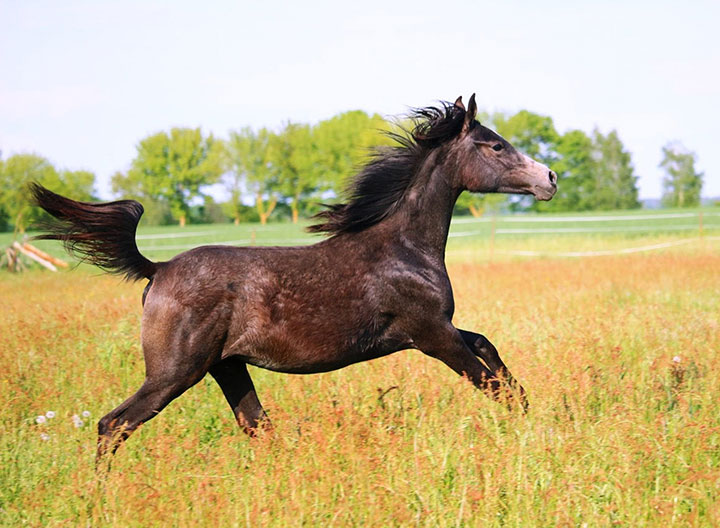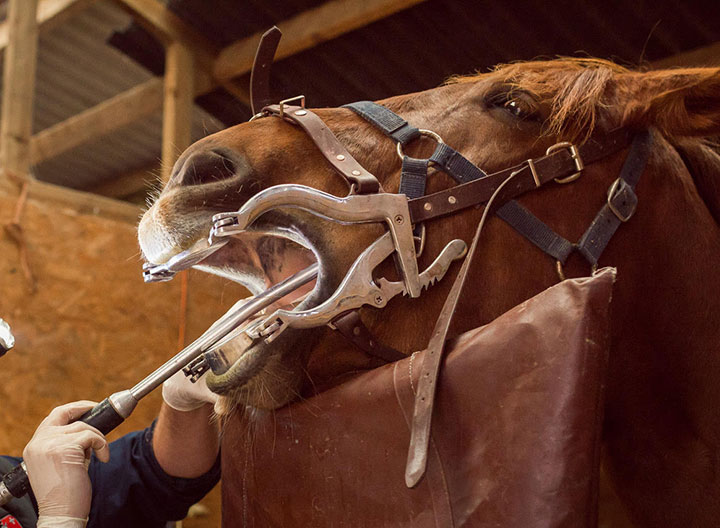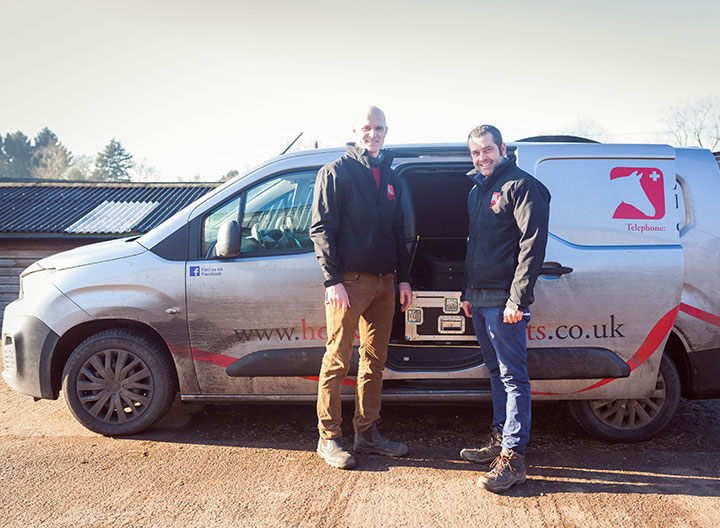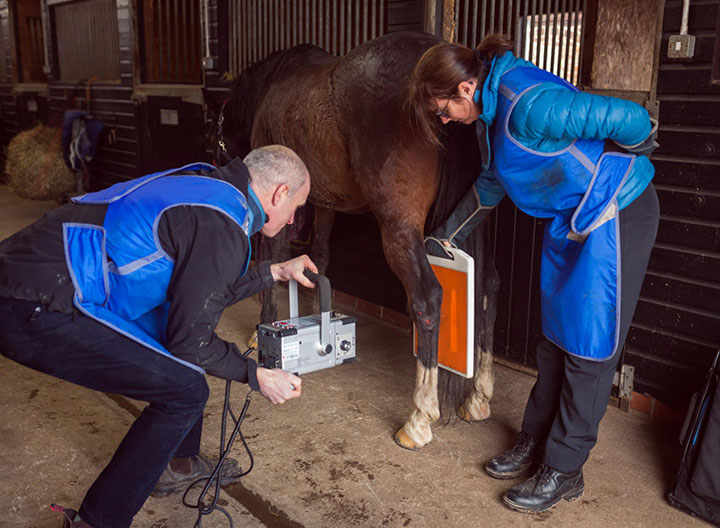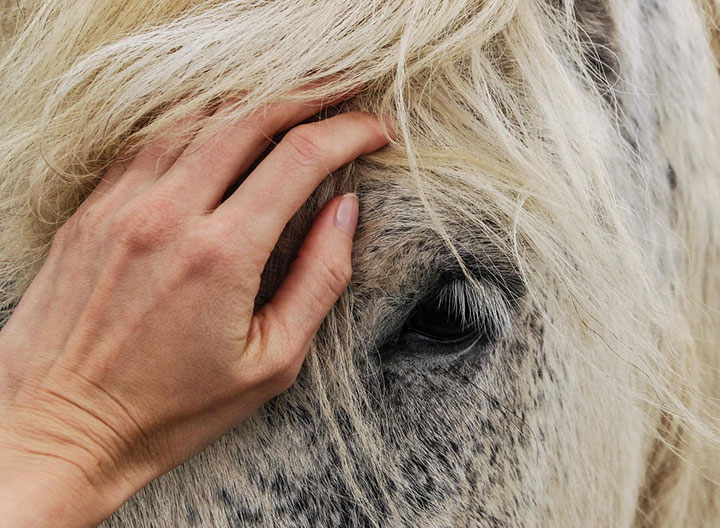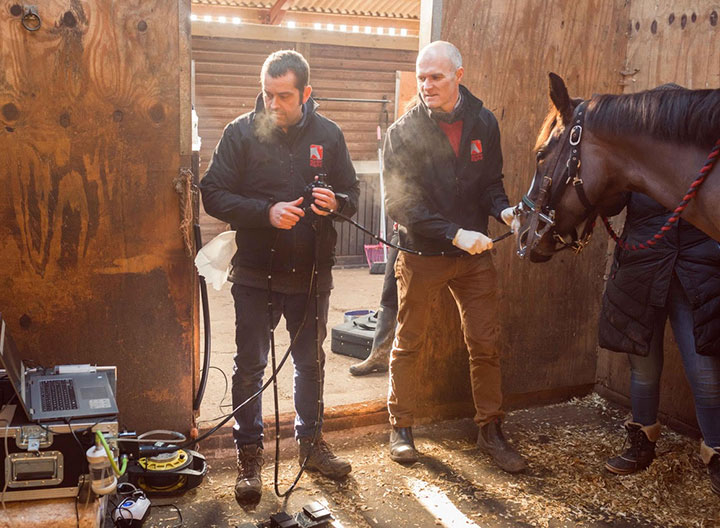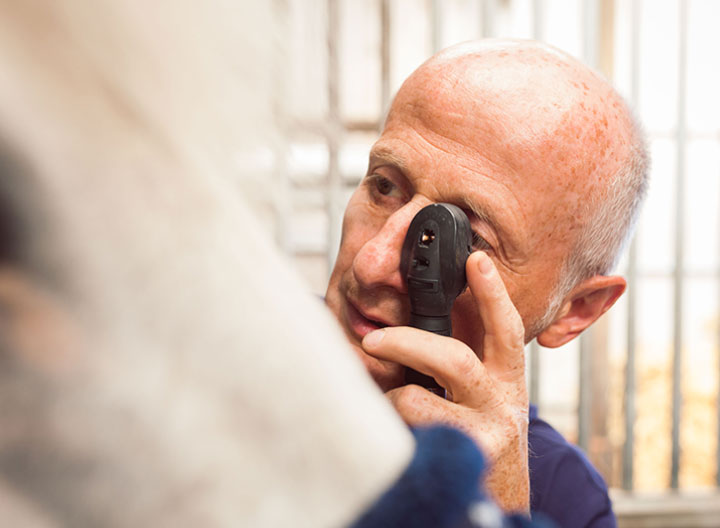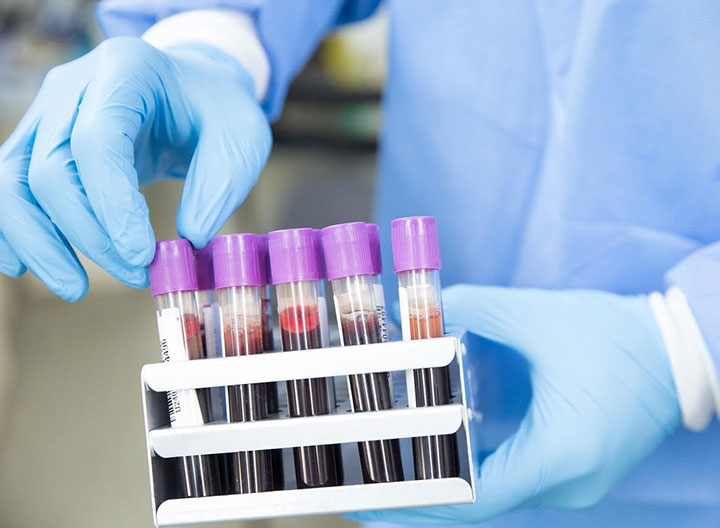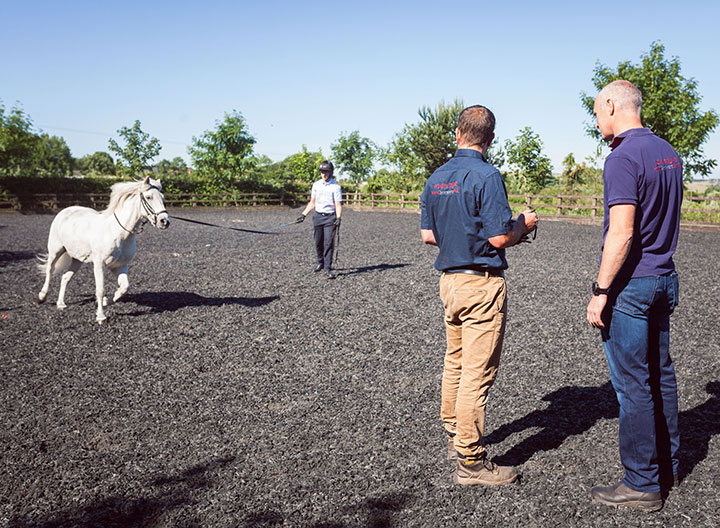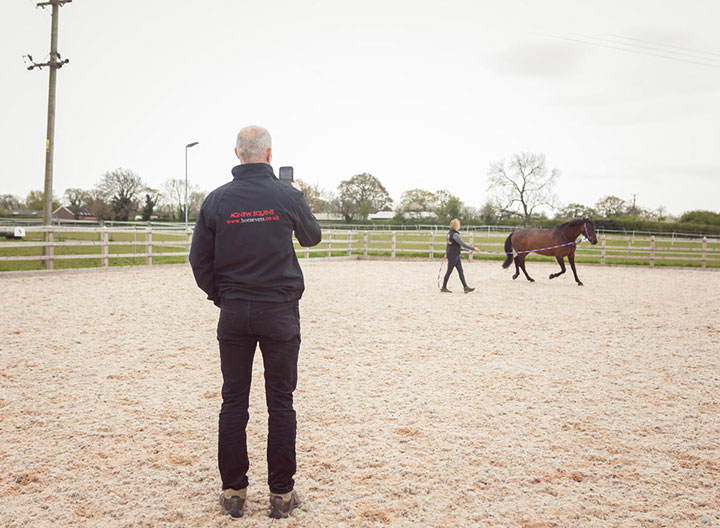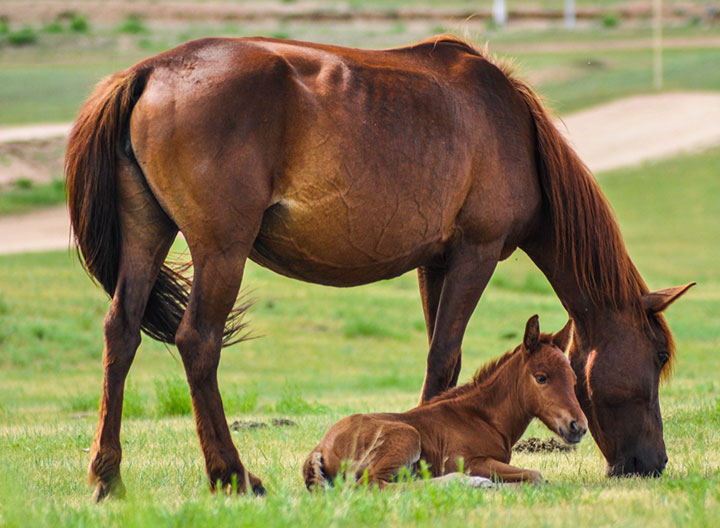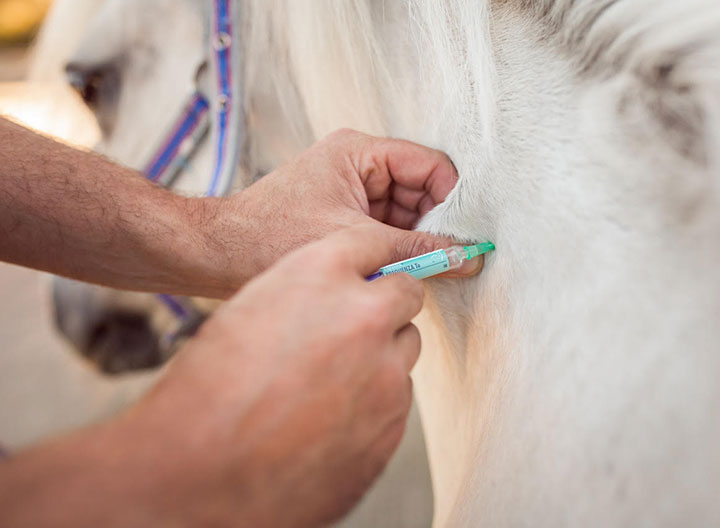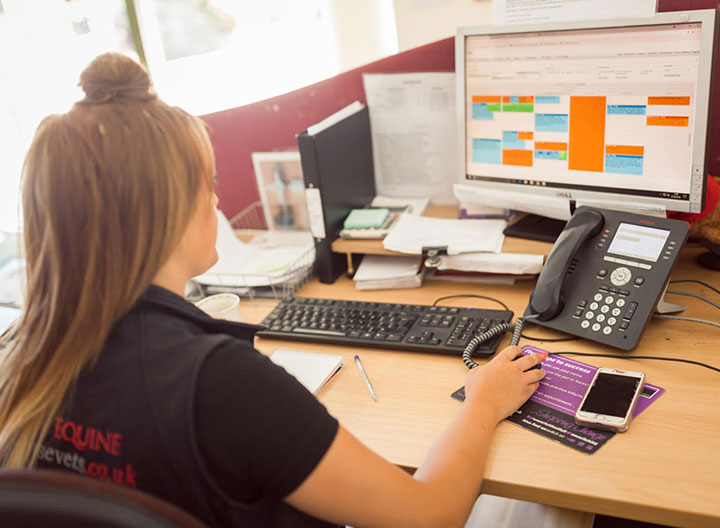Colic
We know colic is something no horse owner wants to encounter - as it is sadly one of the most common causes of death in horses. However, the prognosis today is far better than it once was, and this is a result of better diagnosis and treatment as well as developments with drugs and surgical treatments. The early diagnosis and surgical treatment of more serious cases is one of the most important factors in giving horses the best chance of survival following colic surgery - so calling your vet early if you suspect colic is one of the most important things you can do.
Colic is a term used to describe abdominal (tummy) pain, which in horses is usually caused by problems in the gastrointestinal tract. There are over 70 different types of intestinal problems that can cause colic symptoms, ranging from mild to severe. As well as gastrointestinal problems, colic signs can be seen with other conditions, including; problems with the urinary tract, tying up, laminitis and post-foaling – these are known as ‘false colic’.
The clinical signs associated with colic depend on the level of the pain, and include;
Mild:
- Lip curling
- Flank watching
- Pawing
Moderate:
- Lying for long periods of time
- Repeatedly getting up and down
- Posturing to urinate frequently
Severe:
- Violently rolling
- Sweating
- High respiratory rate
If colic is suspected, prompt veterinary treatment is required. Around 90% of colic cases can be treated medically and this can include pain killers, oral fluids, motility modifiers and gentle exercise. The remaining 10% of colic cases require surgery, which if to provide a successful outcome must be identified and referred to a surgical facility as soon as possible. As a practice, the majority of our surgical colics are referred to Leahurst Equine Hospital for surgery where they have an 80% recovery rate (survival to discharge home). It is important that several factors are considered prior to surgery such as the cost, prognosis and aftercare. Horses require around 4 months of box rest following colic surgery.
There are several things that we use in order to establish if a case of colic will require surgery. These include; findings on rectal exam, the presence of gastric reflux, a persistently high heart rate and no or little response to pain relief.
When responding to a colic, we will ask for a full history of the horse from the owner/groom and then complete a thorough clinical and rectal examination (under sedation for the safety of both the horse and vet). In some cases, further diagnostic tests may be required in order to provide more information on the possible type or cause of the colic and the most appropriate treatment. These include passing a nasogastric tube (stomach tube), abdominocentesis (belly tap), abdominal scans and blood analysis.
Horses that show stereotypical behaviour or have a history of colic are at greater risk of developing colic. In order to reduce the likelihood of colic in your horse there are steps you can take as an owner, such as;
- Providing a supply of fresh water
- Making any changes to the feeding routine slowly over 2-3 weeks
- Allowing access to turnout and exercise
- Providing appropriate worming control
- Ensuring regular (at least annual) dental treatment
Unfortunately, colic can happen no matter our best efforts. Ensure you've got a colic REACT plan in place in case the emergency arises – learn the signs of colic and make a plan.
Would you know what to do if your horse needed to be referred to an equine hospital? Would the cost of the hospital treatment and/or surgery be covered by your insurance? If the yard manager can’t contact you, do they know what you would want to happen to your horse? Have you got transport or details of 24/7 transport companies? Would you refer your horse or would you decide euthanasia? It is important to make an informed decision now, rather than a panicked, emotional decision which could cause you to question your choices in retrospect.
Again, colic is one of the most common emergencies seen in horses. Please call us as soon as colic is suspected for the best possible outcome.

